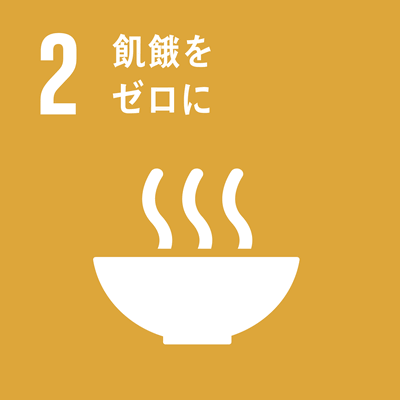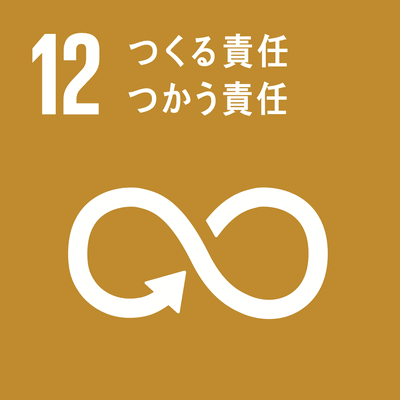シラバス表示
シラバスの詳細な内容を表示します。
→ 閉じる(シラバスの一覧にもどる)
科目の基本情報
| 開講年度 | 2023 年度 | |
|---|---|---|
| 開講区分 | 生物資源学部 | |
| 受講対象学生 |
資源循環学科・全教育コース 学部(学士課程) : 2年次 |
|
| 選択・必修 | 選択 |
|
| 授業科目名 | Introduction to Global Food Security | |
| いんとろだくしょん とぅ ぐろーばる ふーど せきぅりてぃ | ||
| Introduction to global food security | ||
| 単位数 | 2 単位 | |
| ナンバリングコード | BIOR-Reso-3341-006
|
|
| 開放科目 | 開放科目
他学科の学生の受講可 *2年生以上の学生の受講可 |
|
| 開講学期 |
後期 |
|
| 開講時間 |
月曜日 3, 4時限 |
|
| 授業形態 |
対面授業 * 状況により変更される可能性があるので定期的に確認して下さい
「オンライン授業」・・・オンライン会議ツール等を利用して実施する同時双方向型の授業 |
|
| 開講場所 | ||
| 担当教員 | ジャガット クララタナ(特任教員)、タラガラ タランガ(特任教員) | |
| Jagath Kularatne and Thalagala Tharanga | ||
| SDGsの目標 |
|
|
| 連絡事項 | * 状況により変更される可能性があるので定期的に確認して下さい |
|
学修の目的と方法
| 授業の概要 | Food security and sustainable agricultural development have become dominant global issues in this century. The dissemination of modern technology, sharing of research findings, and productive discussions among countries play a vital role in enhancing sustainable agriculture and food security. Most international organizations, academic institutions, and transnational agribusiness widely use English as their language of instruction. Therefore, this course aims to deepen the knowledge of global food security and sustainable agricultural practices in English. The lessons focus on the fundamentals of global food security, food safety, food production, soil management, climate change, sustainable development, agricultural and environmental economics, and statistics. At the end of this course, students will have a theoretical and analytical understanding of scientific concepts and find solutions to global food security issues and sustainable development methods while using scientific English to communicate this knowledge. |
|---|---|
| 学修の目的 | To provide fundamentals of global food security, food safety, food production, soil management, climate change, agricultural and environmental economics, and statistical analysis in English medium. To produce ideas in an acceptable written form and extend the vocabulary in English related to the scientific fields mentioned above. To improve communication skills in English by practicing analysis, critical thinking, formal presentations, and discussions. To develop flexible and versatile human resources in this fast globalizing world. |
| 学修の到達目標 | Upon completion of this course, students will be able to: ・Improve the fundamental knowledge of global food security, food safety, food production, soil management, climate change, agricultural and environmental economics, and statistical analysis. ・Follow lectures conducted in English. ・Learn scientific English, extract the required information and write them in formal reports. ・Present scientific information (PowerPoint, poster, etc.) and have constructive discussions in English. ・Involve in national & international research and projects. ・Develop skills to challenge the world without limiting to their own country. ・Find job opportunities both in national and international markets. |
| ディプロマ・ポリシー |
|
| 成績評価方法と基準 | Homework: [40%] Presentation: [30%] in-class activities: [30%] Students must attend more than 70% of the classes to obtain credits. |
| 授業の方法 | 講義 |
| 授業の特徴 |
プレゼンテーション/ディベートを取り入れた授業 教員と学生、学生相互のやり取りが、ほぼ英語で進められる授業 |
| 授業改善の工夫 | Students are expected to speak freely in English during class, and no need to worry about language mistakes. Teachers speak slowly and clearly, which enables students to understand accurately. The form and procedure of the lecture contents are subject to change slightly following the students' ability. |
| 教科書 | Information on textbooks and references, if any, will be provided in the guidance lesson. In addition, soft copies of scientific literature are provided when necessary. |
| 参考書 | Notify the students as necessary. |
| オフィスアワー | Students may freely visit teachers before or after lessons or by making an appointment via email. jagath@bio.mie-u.ac.jp tharanga@bio.mie-u.ac.jp |
| 受講要件 | Nothing in particular. |
| 予め履修が望ましい科目 | Nothing in particular |
| 発展科目 | Nothing in particular |
| その他 | Students are expected to prepare and revise the lessons to familiarize themselves with scientific English. In addition, the enthusiasm for learning is helpful for students to improve their skills of reading, listening, writing, speaking, analytical, and critical thinking. |
授業計画
| MoodleのコースURL |
|---|
| キーワード | food security, soil, climate change, agroforestry, agricultural economics, statistics |
|---|---|
| Key Word(s) | food security, soil, climate change, agroforestry, agricultural economics, statistics |
| 学修内容 | Reading lessons use agriculture, forestry, biology, ecology, and economic documents. Students should read and comprehend the given passages (intensive reading) and explain the content in English. Writing lessons ask students to prepare short reports based on their lecture notes or information from other sources such as the internet, textbooks, or research papers. Students must answer the given assignments. Communication lessons are conducted as group presentations that include 3~5 members per group. Each member should present for around fifteen minutes, and the audience's students should participate in Q&A sessions. 第1回:Guidance (lesson structure, evaluation, etc.), introduction to global food security, and food production. 第2回:Principals and issues of global food security, the importance of agricultural and environmental economics. 第3回:Climate change impact on food security, agroforestry as a solution. 第4回:Introduction of statistics for the biological sciences (part-1): description of samples, populations. 第5回:Probability and the binomial distribution. 第6回:The normal distribution. 第7回:Presentation-1 in English. 第8回:Presentation-2 in English. 第9回:Introduction to food safety: the importance of outbreaks and strategies to ensure food. 第10回:Greenhouse agriculture: types, modern techniques, and comparisons with outdoor agriculture. 第11回:Food trend in Japan: food self-sufficiency, food consumption, and food industries in Japan. 第12回:Food education (shokuiku) in Japan: current situation, issues, and improvements related to food in Japan. 第13回:Video clip-based lecture: Importance of agriculture in arid regions of the world to solve the food crisis. 第14回:Presentation-3 in English. 第15回:Presentation-4 in English. 第16回:No end-semester examination. |
| 事前・事後学修の内容 | Regular attendance, timely homework submission, preparations, and participation in class activities are strongly recommended. For those who want to upgrade their knowledge of statistics further, we advise you to take the course "Science English-1" ( from 8:50 to 9:20 on Mondays this semester), which includes "statistics for the biological sciences part-2". |
| 事前学修の時間:120分/回 事後学修の時間:120分/回 |


